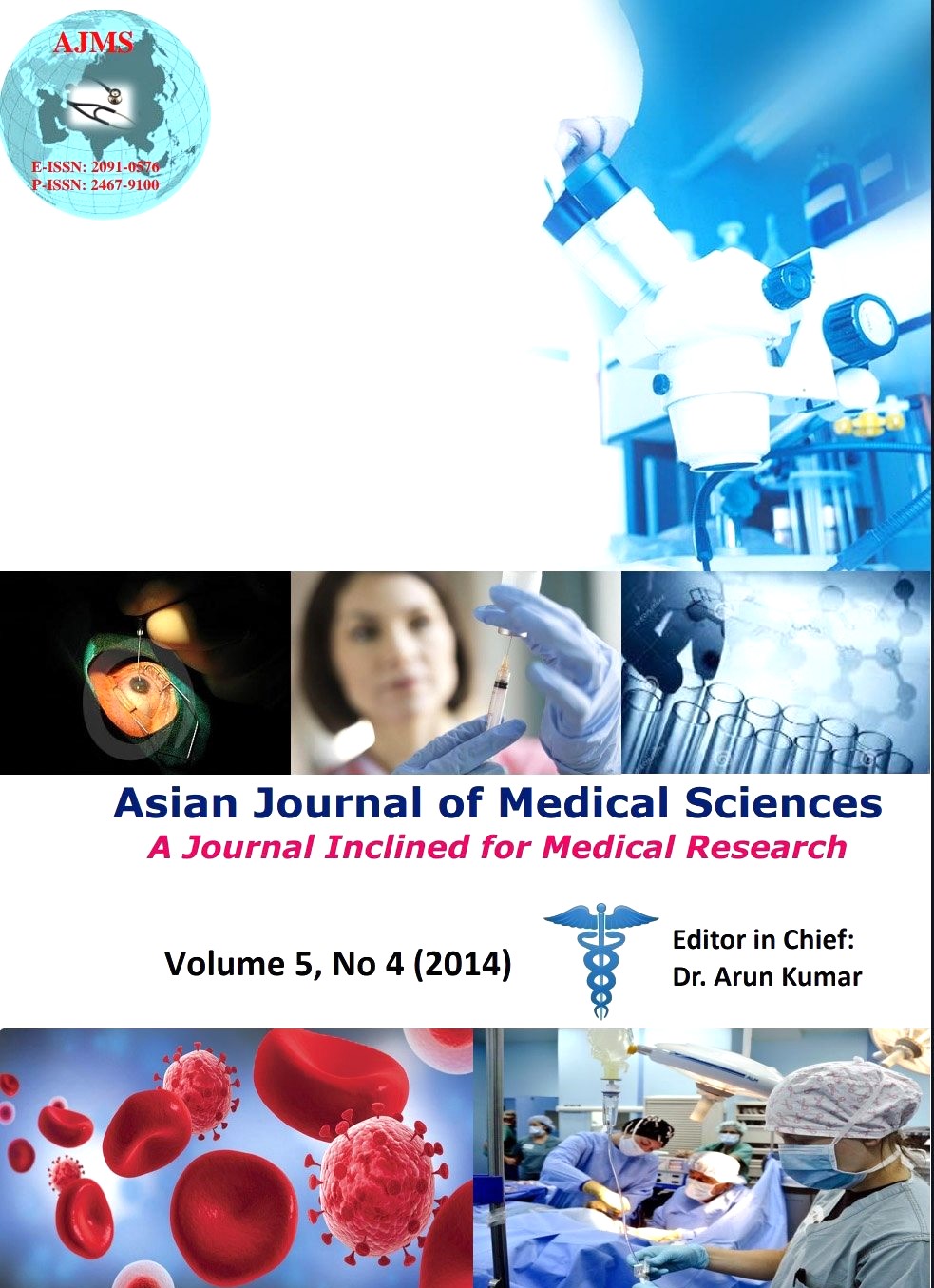Vaginal flora in preterm premature rupture of membranes and their sensitivity to commonly used antibiotics
Keywords:
Vaginal flora, Preterm premature rupture of membranes, AntibioticsAbstract
Background: Ascending infection is one of the most common etiologies in preterm premature rupture of membranes (PPROM). Antibiotics are used in PPROM to prolong the pregnancy and to prevent infection. But to prevent drug overuse and resistance, microorganism directed antibiotics should be used. So, this study was planned to evaluate vaginal flora in pregnant women with PPROM and their sensitivity to commonly used antibiotics.
Methods: In this prospective cross-sectional study, 50 pregnant women (cases) preterm premature rupture of membranes and 28 pregnant women (controls) without complication were assessed for the type of vaginal flora and its sensitivity to commonly used antibiotics.
Results: Among cases 18 (36%) women showed bacteria on Gram’s staining of vaginal swabs with Gram?negative bacteria (10/18) being the most common. Among controls, 16 (57%) women showed bacteria on Gram’s staining with Gram?positive bacteria being most common. Among cases Escherichia coli and Staphylococcus aureus were the commonest isolates. Of 8 (16%) positive bacterial cultures in cases, 6 (10%) were sensitive to Gentamicin and 2 (4%) to Ampicillin.
Conclusion: Lower genital tract flora of pregnant women with PPROM predominantly consists of Gram?negative bacteria, which are sensitive to Gentamicin.
DOI: http://dx.doi.org/10.3126/ajms.v5i4.9889
Asian Journal of Medical Sciences 2014 Vol.5(4); 58-60
Downloads
Downloads
Additional Files
Published
How to Cite
Issue
Section
License
Authors who publish with this journal agree to the following terms:
- The journal holds copyright and publishes the work under a Creative Commons CC-BY-NC license that permits use, distribution and reprduction in any medium, provided the original work is properly cited and is not used for commercial purposes. The journal should be recognised as the original publisher of this work.
- Authors are able to enter into separate, additional contractual arrangements for the non-exclusive distribution of the journal's published version of the work (e.g., post it to an institutional repository or publish it in a book), with an acknowledgement of its initial publication in this journal.
- Authors are permitted and encouraged to post their work online (e.g., in institutional repositories or on their website) prior to and during the submission process, as it can lead to productive exchanges, as well as earlier and greater citation of published work (See The Effect of Open Access).




